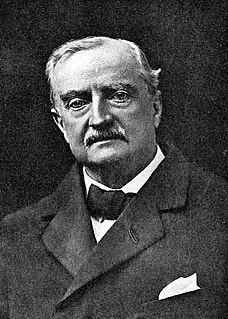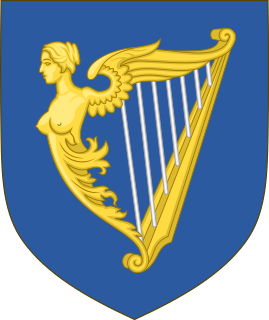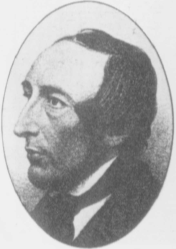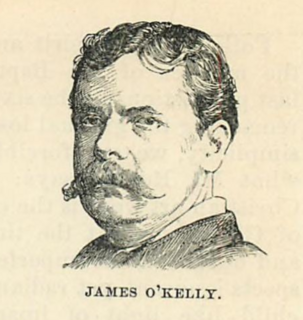Related Research Articles

Timothy Michael Healy, KC was an Irish nationalist politician, journalist, author, barrister and one of the most controversial Irish Members of Parliament (MPs) in the House of Commons of the United Kingdom of Great Britain and Ireland. His political career began in the 1880s under Charles Stewart Parnell's leadership of the Irish Parliamentary Party (IPP), and continued into the 1920s, when he was the first Governor-General of the Irish Free State.

Charles Stewart Parnell was an Irish nationalist politician who served as a Member of Parliament (MP) from 1875 to 1891, also acting as Leader of the Home Rule League from 1880 to 1882 and then Leader of the Irish Parliamentary Party from 1882 to 1891. His party held the balance of power in the House of Commons during the Home Rule debates of 1885–1886.

Isaac Butt was an Irish barrister, editor, politician, Member of Parliament (M.P.) in the House of Commons of the United Kingdom, economist and the founder and first leader of a number of Irish nationalist parties and organisations. He was a leader in the Irish Metropolitan Conservative Society in 1836, the Home Government Association in 1870 and in 1873 the Home Rule League. Colin W. Reid argues that Home Rule was the mechanism Butt proposed to bind Ireland to Great Britain. It would end the ambiguities of the Act of Union of 1800. He portrayed a federalised United Kingdom, which would have weakened Irish exceptionalism within a broader British context. Butt was representative of a constructive national unionism. As an economist, he made significant contributions regarding the potential resource mobilization and distribution aspects of protection, and analysed deficiencies in the Irish economy such as sparse employment, low productivity, and misallocation of land. He dissented from the established Ricardian theories and favored some welfare state concepts. As editor he made the Dublin University Magazine a leading Irish journal of politics and literature.

John Edward Redmond was an Irish nationalist politician, barrister, and MP in the House of Commons of the United Kingdom. He was best known as leader of the moderate Irish Parliamentary Party (IPP) from 1900 until his death in 1918. He was also leader of the paramilitary organisation the Irish National Volunteers (INV).

The Irish Parliamentary Party was formed in 1874 by Isaac Butt, the leader of the Nationalist Party, replacing the Home Rule League, as official parliamentary party for Irish nationalist Members of Parliament (MPs) elected to the House of Commons at Westminster within the United Kingdom of Great Britain and Ireland up until 1918. Its central objectives were legislative independence for Ireland and land reform. Its constitutional movement was instrumental in laying the groundwork for Irish self-government through three Irish Home Rule bills.

John Dillon was an Irish politician from Dublin, who served as a Member of Parliament (MP) for over 35 years and was the last leader of the Irish Parliamentary Party. By political disposition Dillon was an advocate of Irish nationalism, originally a follower of Charles Stewart Parnell, supporting land reform and Irish Home Rule.

Timothy Charles Harrington, born in Castletownbere, County Cork, was an Irish journalist, barrister, nationalist politician and Member of Parliament (MP) in the House of Commons of the United Kingdom of Great Britain and Ireland. As a member of the Irish Parliamentary Party he represented Westmeath from February 1883 to November 1885. In 1885 he was elected for the new constituency of Dublin Harbour, which he represented until his death in 1910. He served as Lord Mayor of Dublin three times from 1901–04.
William Abraham was an Irish Member of Parliament (MP) in the United Kingdom House of Commons. He was born in Limerick.

Avondale House, in Avondale, County Wicklow, Ireland, is the birthplace and home of Charles Stewart Parnell It is set in the Avondale Forest Park spanning over 2 km² of land, approximately 1.5 km from the nearby town of Rathdrum. The river Avonmore flows through the park on its way towards the Irish Sea. The House is now a museum.

William Hoey Kearney Redmond was an Irish nationalist politician, lawyer and soldier, who was killed in action in World War I.

John Martin was an Irish nationalist activist who shifted from early militant support for Young Ireland and Repeal, to non-violent alternatives such as support for tenant farmers' rights and eventually as the first Home Rule MP, for Meath 1871–1875.

James Joseph O'Kelly was an Irish nationalist journalist, politician and member of the House of Commons of the United Kingdom of Great Britain and Ireland and as member of the Irish Parliamentary Party represented the Roscommon constituency between 1880 and 1916.

John O'Connor Power was an Irish Fenian and a Home Rule League and Irish Parliamentary Party politician and as MP in the House of Commons of the United Kingdom of Great Britain and Ireland represented Mayo from June 1874 to 1885. He practised as a barrister from 1881.
The term New Departure has been used to describe several initiatives in the late 19th century by which Irish republicans, who were committed to independence from Britain by physical force, attempted to find a common ground for co-operation with groups committed to Irish Home Rule by constitutional means. In the wake of the Fenian Rising of 1867 and the unpopular executions which followed it, Fenianism was popularised and became more moderate, while the Home Rule movement was edging toward radicalism at the same time, laying the framework for the alliance. The term was coined by John Devoy in an anonymous article in the New York Herald on 27 October 1878 in which he laid out a framework for a new policy.
John Howard Parnell was an older brother of the Irish Nationalist leader Charles Stewart Parnell and after his brother's death was himself a Parnellite Nationalist Member of Parliament, for South Meath from 1895 to 1900. From 1898 he was also Dublin City Marshal.
James Gubbins Fitzgerald was a medical practitioner and an Irish nationalist politician and Member of Parliament (MP) in the House of Commons of the United Kingdom of Great Britain and Ireland. As a member of the Irish Parliamentary Party, he represented South Longford from 1888 to 1892. He was a strong supporter of Charles Stewart Parnell.
Garrett Michael Byrne was an Irish nationalist and MP in the House of Commons of the United Kingdom of Great Britain and Ireland and as member of the Irish Parliamentary Party represented Co. Wexford, 1880–83, and West Wicklow, 1885–92. He was a strong supporter of Charles Stewart Parnell.
Sir John Parnell, 1st Baronet, was an Irish politician and a baronet.

Sir John Parnell, 2nd Baronet was an Anglo-Irish Member of Parliament.
Richard Barry O'Brien was a lawyer, historian, Irish journalist and prolific writer on Irish subjects.
References
- ↑ R. Barry O'Brien, 'The Life of Charles Stewart Parnell, 1846-1891', p.112 (London and New York, 1910).
- Leigh Rayment's Historical List of MPs
- Dictionary of Irish Biography.